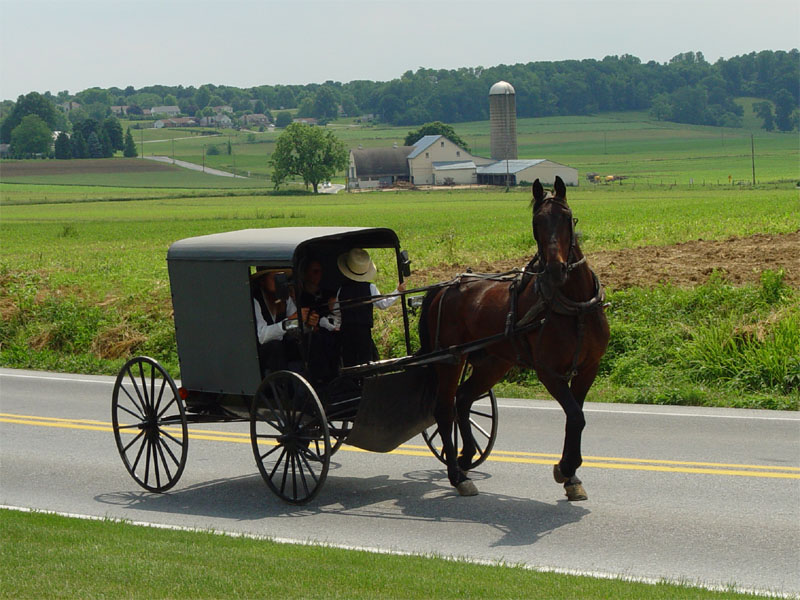Apparently the SAFE Act is having an unintended consequence for Amish farmers. The Amish maintain a religious objection to being photographed. Before the SAFE Act, private transfers of rifles used to be legal in New York, so the Amish still had means to get a firearm without photo-id. Since SAFE outlawed private transfers, there’s now no way for an Amish person to get around the photo-id issue. New York State has required photo-id for pistol licenses for some time. The Shooter’s Committee on Political Education (SCOPE) is meeting with the farmers to presumably discuss a lawsuit.
The Brady Act essentially requires photo-id to purchase a firearm, and ATF has been pretty clear on the matter:
ATF has been asked whether firearms purchasers may be exempted from the requirement for an identification document with a photograph based on religious objections. The Brady law does not provide for such an exemption. All over-the- counter transfers are subject to the photo identification requirement.
The Brady Act may not provide any exception, but the RFRA certainly does. I would think a plaintiff would easily prevail in a suit against ATF for failing to make a reasonable accommodation under the RFRA.
The SAFE act is another matter, however, being a function of state law. The federal RFRA was ruled not to apply to the states under the 14th Amendment, and unlike most other states, New York has never passed a state analogue. I am not aware of whether or not New York provides religious protection through its courts that is greater than the federal courts provide, but it looks like as of at least 1999 they had not. There has, however, already been a case in the New York courts involving this very subject, from that same article linked previously:
In an interesting application of the state constitution’s free exercise clause, the court in In re Miller recently authorized a religious exemption to a requirement that an applicant for a pistol permit must submit a photograph. An Amish man refused to allow himself to be photographed for the permit on the ground that being photographed was against his religion. In lieu of a photograph, he offered to allow himself to be fingerprinted. The court balanced “the importance of the right asserted” against the governmental “needs and objectives being promoted” and concluded that the defendant’s right to free exercise justified an exemption from the photograph requirement. Although the court did not explicitly spell out a compelling interest test, it did note that “the Assistant Attorney General has argued very ably and cogently that the State’s interests in requiring a photograph are ‘compelling,’ extending beyond mere administrative convenience.” Nevertheless, the court decided that the applicant’s free exercise interest outweighed these compelling state interests because a less restrictive means of identification was available.
This would help them if they pursue relief in state court, but it would seem to me that if it is the federal photo-id requirement that is at issue here, the federal RFRA would be the easiest way to force an accommodation here. If the photo-id requirement is a function of the SAFE act directly, and not just an indirect consequence of banning private transfers, it’s good to see there’s existing cases in the New York Court system that make an accommodation for people’s religious practices and beliefs.
SCOPE may want to consider engaging the ACLU, who has shown a willingness to get involved in these kinds of suits that involve Second Amendment rights, but also touch on some of their traditional areas of litigation, like this case. Their presence on the case may play well with old-school liberal judges (who date back to when liberals cared about civil liberties), and they are experienced at fighting cases like this.


One thought on “Amish Farmers in New York Denied Gun Rights by SAFE Act”
Comments are closed.